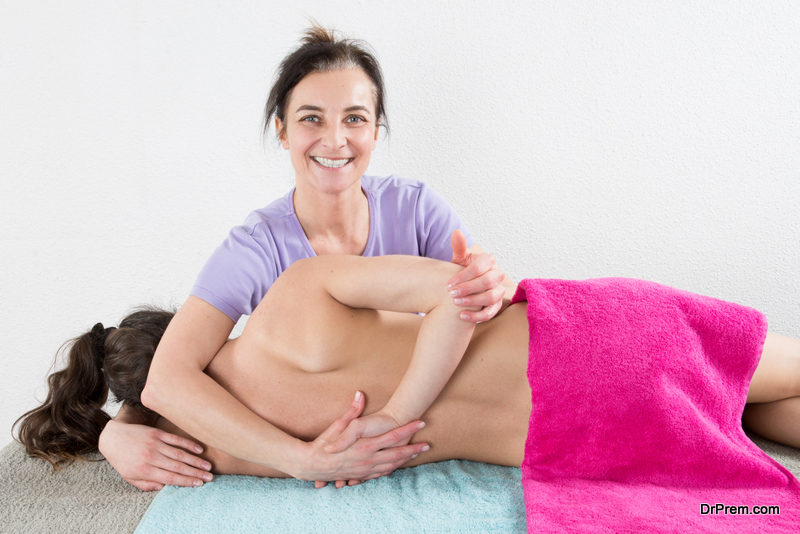Do you live and breathe fitness? Are you obsessed with nutrition, exercise, and everything health and wellness? If you answered yes to any (or all) of these questions, you should probably consider a career in the fitness or health industry. Why not turn your passion into profit? You can help others who share your passion better their lives and reach their goals. Not sure where to get started? Keep reading for six health and fitness careers that can turn your hobby into a career and a mission to help others.
1. Nutritionist
 Any health and fitness enthusiast knows that proper nutrition is the basis of any good program. In fact, weight loss is achieved 80% through diet and only 20% thanks to exercise (although both are important components). Are you fascinated by calculating macros and micros? Do you love crafting special diets to meet individual needs? Nutritionists work with all types of people in a variety of settings from doctor’s offices and sports facilities to schools and hospitals. And weight loss isn’t always the goal! Many nutritionists are trained in helping people maintain a healthy lifestyle for the long-term. This might mean treating diabetes, lowering cholesterol, or battling an eating disorder. Many nutritionists work closely with medical professionals and athletic trainers to help athletes achieve the best results. After all, what you fuel your body with determines performance and stamina in many ways.
Any health and fitness enthusiast knows that proper nutrition is the basis of any good program. In fact, weight loss is achieved 80% through diet and only 20% thanks to exercise (although both are important components). Are you fascinated by calculating macros and micros? Do you love crafting special diets to meet individual needs? Nutritionists work with all types of people in a variety of settings from doctor’s offices and sports facilities to schools and hospitals. And weight loss isn’t always the goal! Many nutritionists are trained in helping people maintain a healthy lifestyle for the long-term. This might mean treating diabetes, lowering cholesterol, or battling an eating disorder. Many nutritionists work closely with medical professionals and athletic trainers to help athletes achieve the best results. After all, what you fuel your body with determines performance and stamina in many ways.
2. Personal Trainer
From the kitchen to the gym. If you’re more concerned with helping people build muscle, tone, and burn calories, a personal trainer might be the perfect job for you. Personal trainers help athletes and everyday people achieve their fitness goals through guided instruction, specially tailored workouts, and education and experience about body composition. Looking to bulk up your arms and tone your back muscles? A personal trainer can help you target these areas and find the perfect weight and exercises to use. Another advantage to being a personal trainer is that you’re truly changing lives. Not only are you a fitness coach, but also a life coach, in a sense. You motivate, encourage, and hold your clients accountable to achieving their goals. All types of people can benefit from using a personal trainer — it’s not just for “fit” people or those who already workout regularly. If you’ve ever seen the show The Biggest Loser, you know that personal trainers help motivate and inspire even overweight and obese individuals. Being a personal trainer is about balancing your education and passion for fitness with having a winning, charming personality. Sound like a great career choice for you? Check out this page to learn exactly what you need to make your personal training dreams come true!
3. Physical Therapist
 Are you interested in helping people heal following an injury or surgery? Physical therapy allows you to work closely with patients who are struggling to regain mobility, range of motion, and flexibility. A few different types of therapists fall under this category based on the person’s needs, and therapists can choose to work with different types of patients and injuries – from athletes to senior citizens and even amputees!
Are you interested in helping people heal following an injury or surgery? Physical therapy allows you to work closely with patients who are struggling to regain mobility, range of motion, and flexibility. A few different types of therapists fall under this category based on the person’s needs, and therapists can choose to work with different types of patients and injuries – from athletes to senior citizens and even amputees!
Occupational Therapist
Occupational therapy focuses on helping patients perform everyday tasks. Things like writing, getting dressed, walking, and even feeding themselves all fall under the category of occupational therapy. Some of these ailments or handicaps are caused by injury, while others are due to illness. Conditions like a stroke, car accident, or even dementia can make everyday tasks nearly impossible. As an occupational therapist, you’d use different exercises, techniques, and tools to help patients build strength and coordination. Both adults and children who need occupational therapy benefit from more than just the physical growth and progress. Being able to take care of oneself works wonders for self-confidence and feelings of self-worth. This is especially important for ailing senior citizens, healthy individuals injured in an accident, and children exploring their independence. Therapy helps put control and confidence back in the hands of patients of all ages.
Recreational Therapist
 Recreational therapy is similar to occupational therapy, but focuses more on patients who are sick, disabled, or injured. They use a range of creative and abstract tools and exercises to treat patients. For example, arts and crafts, music, dance, and aquatic exercises and activities are all basic elements found in recreational therapy. This makes this form of therapy especially popular among younger and mentally disabled patients. Recreational therapy works on treating the whole patient — emotionally, socially, and physically.
Recreational therapy is similar to occupational therapy, but focuses more on patients who are sick, disabled, or injured. They use a range of creative and abstract tools and exercises to treat patients. For example, arts and crafts, music, dance, and aquatic exercises and activities are all basic elements found in recreational therapy. This makes this form of therapy especially popular among younger and mentally disabled patients. Recreational therapy works on treating the whole patient — emotionally, socially, and physically.
Massage Therapist
Some people think of massage therapy as a treat that people indulge in simply for relaxation. And while massages are a great form of self-care, they’re also extremely important in terms of recovery. There’s no better method for improving circulation than massage therapy. As a masseuse, you’re skilled in manipulating and kneading sore or injured muscles to help blood flow more freely to those areas. This speeds up the healing process significantly. But blood flow isn’t the only way that massage helps the healing process. It also helps send vital nutrients and oxygen throughout the body, and especially to those areas affected by trauma — including vital organs and tissue. Massage also helps ease the pain, tightness, and discomfort associated with sore or injured muscles.
5. Athletic Coach
 Are you a sports fanatic? Have you always dreamed of playing a professional sport? While the chances of this happening are relatively slim, it doesn’t mean you can’t pursue your athletic dream in a different way. Athletic coaches are responsible for more than just winning games and creating plays. They’re also tasked with helping their athletes thrive through rigorous exercise and training. Coaches must ensure their athletes are safe and healthy, while pushing themselves within healthy boundaries. This is especially true for coaches of young athletes who are still growing and whose bones and ligaments are not fully developed. In fact, more than 3.5 million young athletes are injured each year! As a coach you can build confidence, help athletes excel, and live out your lifelong dream.
Are you a sports fanatic? Have you always dreamed of playing a professional sport? While the chances of this happening are relatively slim, it doesn’t mean you can’t pursue your athletic dream in a different way. Athletic coaches are responsible for more than just winning games and creating plays. They’re also tasked with helping their athletes thrive through rigorous exercise and training. Coaches must ensure their athletes are safe and healthy, while pushing themselves within healthy boundaries. This is especially true for coaches of young athletes who are still growing and whose bones and ligaments are not fully developed. In fact, more than 3.5 million young athletes are injured each year! As a coach you can build confidence, help athletes excel, and live out your lifelong dream.
If health and fitness means more to you than just hitting the gym every morning, you may want to pursue a career that turns your hobby into a lifestyle. Consider which aspects of health and fitness you’re most passionate about and make your dream a reality!
Article Submitted By Community Writer




